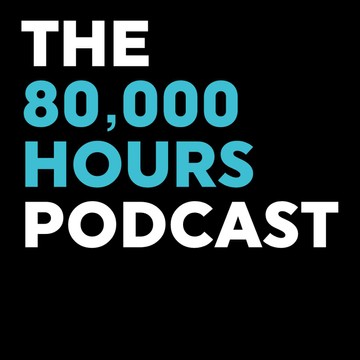
Ian Morris
Historian and classicist at Stanford University. Author of several books on macro history, including *Why the West Rules—for Now*.
Top 5 podcasts with Ian Morris
Ranked by the Snipd community

89 snips
Jan 15, 2025 • 3h 41min
#134 Classic episode – Ian Morris on what big-picture history teaches us
Ian Morris, a bestselling historian and Willard Professor of Classics at Stanford University, dives deep into the evolution of human values over millennia. He discusses how moral landscapes have transformed from slavery being deemed natural to modern views on gender and equality. The conversation covers the interplay of warfare, energy sources, and social dynamics in shaping cultural norms. Morris argues for a provocative view that society evolves towards organizational systems that enhance survival and efficiency, revealing the fascinating parallels between past and present.

37 snips
Oct 23, 2023 • 2h 44min
#168 – Ian Morris on whether deep history says we're heading for an intelligence explosion
Ian Morris, a historian and classicist at Stanford University, dives into the fascinating interplay between historical trends and future possibilities. He argues that while innovation may seem to slow, we are on the brink of an evolutionary leap in technology. The conversation touches on why we shouldn't view technology strictly through an evolutionary lens, the potential resurgence of violence with advanced AI, and the complexities of human development that challenge our perceptions of progress. Morris also discusses the potential futures humanity faces, from intelligence explosions to existential threats.

31 snips
Jul 22, 2022 • 3h 41min
#134 – Ian Morris on what big-picture history teaches us
In a thought-provoking discussion, Ian Morris, a best-selling historian and Willard Professor of Classics at Stanford, delves into how human values have changed over thousands of years. He argues that societal organization evolves toward energy efficiency, shaping everything from gender roles to governance. Morris also explores the impact of geography on historical narratives, the relationship between war and development, and the tight bonds between energy extraction and moral frameworks. This captivating journey through macrohistory reveals how past trends inform our future.

9 snips
Feb 27, 2017 • 49min
07 The Persian Wars w/ Ian Morris (Herodotus, Thucydides, Xenophon)
Archaeologist and professor of Classics at Stanford University, Ian Morris, discusses the Persian expeditions against Greece in 490-479 BC. He explains the latest research on economies, technologies, and demographics of both civilizations and how they may have affected the outcome of the conflict. The episode touches on some main ideas from Morris' book 'War: What is it good for?' which counters the belief that warfare has made human societies progressively less violent. The podcast explores the concept of productive vs unproductive war, the differences between the Persian Empire and the ancient Greek world, the role of democracies and republics in going to war, and the geographical significance of Maelidus in history.

Nov 8, 2023 • 28min
Highlights: #168 – Ian Morris on whether deep history says we’re heading for an intelligence explosion
Ian Morris talks about the potential for an intelligence explosion, exploring the three scenarios for humanity, astonishing burials in Sungir, hunter-gatherer societies, the future of hybrid intelligence, and cycles of history and civilization development.


